Overnight, he became an icon for the LGBTQ movement, featured in pride parades and publications. As a US Navy SEAL, he represented the apex of masculinity, the ultimate alpha male. So when Chris transitioned to Kristin, the message was splashy: anyone and everyone is transitioning genders.
But then Chris Beck came back. He found healing in Jesus for the childhood traumas that plagued him behind the public’s eye and led him to “destroy” his life.
“It was a mistake. It wasn’t right,” he says on Shawn Ryan’s podcast. “It’s something that never should have happened. I’m not a female, was never a female. A male can’t be a female.”
His comments mark a stark contrast with declarations on CNN in 2012: “No one ever met the real me. I would put nail polish on. I could have, you know, a pair of my sister’s shoes on,” Beck said. “It was like a reset; it was like a vacation for me. So I had my vacation away from Chris.”
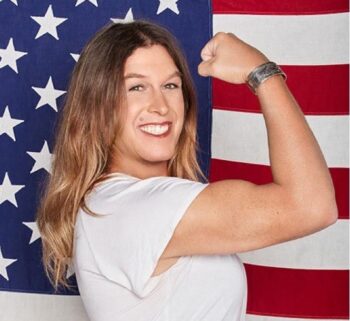 His latest comments represent an emphatic rebuttal to the CNN interview. “CNN used me and my image to hurt kids,” he says on Robby Starbuck. “Everything you see on CNN with my face, do not believe a word of it.”
His latest comments represent an emphatic rebuttal to the CNN interview. “CNN used me and my image to hurt kids,” he says on Robby Starbuck. “Everything you see on CNN with my face, do not believe a word of it.”
Chris Beck’s troubles began on a farm. His father was a former NFL player whose brutality on the field carried over into child discipline. Chris bore the brunt of punishments, he tells Shawn Ryan.
At the same time, he was saddled with difficult chores. He lugged a 10-gallon bucket over the hill to water the animals, often covered in mud.
In the meantime, his pretty older sister, because she was girl, didn’t have to do those chores. She was taken care of and cherished.
Chris envied her. He wished he could be like her. That was the starting point of his foray into transgender.
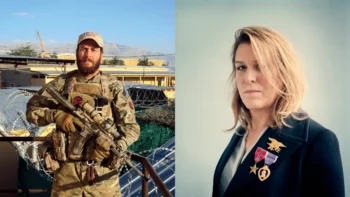 As a little child, he put on a dress with playmates. People complimented his “beauty.” The one-time experience became a secret activity, intensified by the envy of his sister.
As a little child, he put on a dress with playmates. People complimented his “beauty.” The one-time experience became a secret activity, intensified by the envy of his sister.
Then in high school, he got kicked out for buying a motorcycle. He built a lean-to in the woods out back and lived on his own. He made friends with a Native American who had been kicked out of his tribe. Chris found out why later.
The Native American was a pedophile and tried to rape Chris. Even though he fought him and escaped, something of perverse sexuality was communicated to him. In psychology, it’s called trauma. In Christianity, it’s seen as demonic. These childhood experiences have a lasting impact into adulthood. That was the third seed of evil that festered in the background of his mind.
Eventually, these experiences manifested in external behaviors, energized by an “exploitative” therapist, the misguided psychology field and abundant “love-bombing,” to lead him into the error of becoming Kristin, he says.
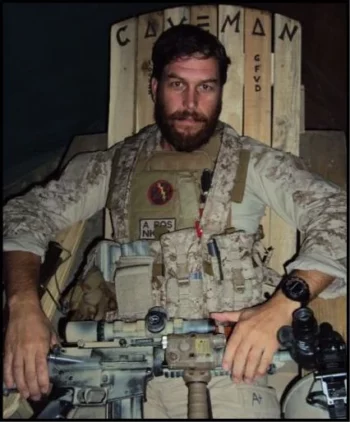 But while he secretly admired and imitated the feminine, there was plenty of masculinity there. He played football in high school, enrolled in Virginia Military Institute (1984-87) and then the SEALs.
But while he secretly admired and imitated the feminine, there was plenty of masculinity there. He played football in high school, enrolled in Virginia Military Institute (1984-87) and then the SEALs.
He never completed the electrical engineering degrees at VMI because he chafed under instruction, but his technical brain became useful later when he moved into the development of new military hardware for SOCOM.
At SEALs, he gave, in his own words, 150% all the time, earning wide respect and sometimes resentment. He participated in seven combat deployments and six non-combat deployments. He fought in Afghanistan and Iraq, often using cutting-edge technology in new ways that led to new strategies (such as aiming mortars with Unmanned Aerial Vehicles to see forward targets). His nickname: Caveman.
Because of back injuries and because of his knack for technology, Chris transitioned into weapons development at the Navy’s DEVGRU labs. He developed the paddle powered two-man submarine that helps SEAL swimmers arrive at a target faster and silently; it fit in the unused torpedo tubes.
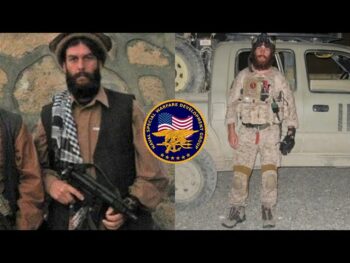 The last project he was working on was the so-called Ironman suit, which he fought with the Pentagon to make cheaper and quicker than the heavy, robotic suit that the guys not familiar with field warfare wanted.
The last project he was working on was the so-called Ironman suit, which he fought with the Pentagon to make cheaper and quicker than the heavy, robotic suit that the guys not familiar with field warfare wanted.
Aside from the childhood traumas, he sustained PTSD and traumatic brain injury. Through the Veterans Administration, he was prescribed opioids and antidepressants.
In secret, he dabbled in cross-dressing and auto-gynephilia, a man’s propensity to be sexually aroused by the thought or image of himself as a female.
He felt gender dysphoria.
He also liked riding his motorcycle at over 120 mph. When he retired from the Navy, he continued as a civilian contractor on the same projects. He consulted for $500 an hour.
 Retirement presented the opportunity for him to explore things he’d denied himself, so he would not run afoul of military doctrine. At the time, the military adhered to the “don’t ask, don’t tell” policy for homosexuals and other paraphilia.
Retirement presented the opportunity for him to explore things he’d denied himself, so he would not run afoul of military doctrine. At the time, the military adhered to the “don’t ask, don’t tell” policy for homosexuals and other paraphilia.
The combination of all factors was the cocktail for him to try transgender, but the decisive blow was a VA psychologist who was supposed to help him. Recommended by a combat buddy, the psychologist had impressive credentials and had helped others with PTSD.
Thinking he could avail himself of their expertise, Chris shared with the psychologist the cross-dressing. He now thinks they took advantage of him.
Chris says the psychologist proposed they become millionaires by doing a book, a contract he signed, he says, under the influence of alcohol and drugs.
 As therapist, the psychologist delved into his background story for the book. Meanwhile, the psychologist told him the solution to the gender dysphoria and auto-gynephilia was to become transgender.
As therapist, the psychologist delved into his background story for the book. Meanwhile, the psychologist told him the solution to the gender dysphoria and auto-gynephilia was to become transgender.
Hoping for some happiness that had eluded him throughout life, he followed their advice. But halfway through the process, he felt exploited by the book being done and hired a lawyer to halt it, he says. He couldn’t halt it because the contract was signed.
Chris took hormone blockers, had implants put in and got multiple surgeries performed on his face to make it look more feminine. He did not have his penis surgically removed. Part of the reason why he went forward with the treatments is that he didn’t expect to live much longer. He was driving his motorcycle recklessly and snorting lines of coke, he says.
When Warrior Princess came out, Chris aka Kristin was launched to national notoriety as an icon for LGBTQ.
“I didn’t want that book published,” he says. “Three days after the book came out, people are knocking on my door asking for interviews, news trucks were in front of my house. Because I was SEAL Team 6, the whole world that supports the narrative saw their champion.”
CNN pressed him for an interview, which relentingly he conceded. He participated in gay pride parades, allowed photographs and soaked up the initial celebrity status.
That adulation he now calls “love bombing,” a strategy developed by cults and used amply to help people who are insecure to feel like they’re making the right decision by going LGBTQ, he says.
But behind the national SEAL hero, behind the LGBTQ hero, remained a heart that was confused and still hurting.
He had two divorces. He got frozen out of Pentagon development projects and consultation. He let his contracts slide. He went from a high-flying lifestyle to unemployment.
He started studying to earn a master’s degree in mental health – to help fellow veterans and to help himself. But he became disillusioned when he realized that psychology had been taken over by woke ideology.
The latest updates of the DSM (Diagnostic and Statistical Manual of Mental Disorders) subsumed auto-gynephilia and gender dysphoria into transgenderism so that psychologists automatically direct clients into transition.
“The DSM is a piece of garbage,” he says. “They refuse to accept that gender dysphoria exists and that not everybody is transgender.”
The more he learned about mental health, the more Chris realized he’s made a mistake by going down the transgender rabbit hole.
At this time, he met Courtney, a fellow psychology student with her own mental health issues. They became friends, mutual supporters and eventually fiancés.
After a year-and-a-half of hormone blockers, Chris stopped. He began wearing flannel shirts to hide the implants. Every time he looked at himself in the mirror, he regretted multiple surgeries to make himself look more feminine.
“That’s not my face,” he says, looking into the mirror.
He found God. “I wear the armor of God,” he says. “I wake up every morning, I read my Bible for an hour. We are created in the image of God. This body that I have was given by the grace of God. I think we need to stop all this damage.”
Chris does not want to ban transgender surgeries. He is opposing the psychological and medical fields pushing it on anyone with any inkling of related symptoms. He says half of transgenders should never have submitted to surgery.
Chris says that with all the therapy, medications and surgeries, each transgender nets the industry $450,000. Thousands of gender clinics have emerged throughout the US because of their profitability.
Christ is adamantly opposed to drag queens performing for kids, an experience he sees akin to what happened to him when he was nearly raped as a teen.
“If you’re a parent bringing your kids to these drag shows, you’re messing you kid up,” he says. “You think you’re being all compassionate to the drag queens… They’re giving kids the same pharmaceutical they used to give to pedophiles in prisons to chemically castrate them. That’s criminal.”
To learn more about a personal relationship with Jesus, click here
Other articles about Navy SEALs: Shawn Ryan, Remi Adeleke, David Goggins, Eddie Penney, Jason Redman, Chad Williams and Army Rangers: Dave Eubank, Jeff Streucker and Tim Moynihan.
About these writer: Michael Ashcraft reported from Los Angeles where he pastors a church in the San Fernando Valley

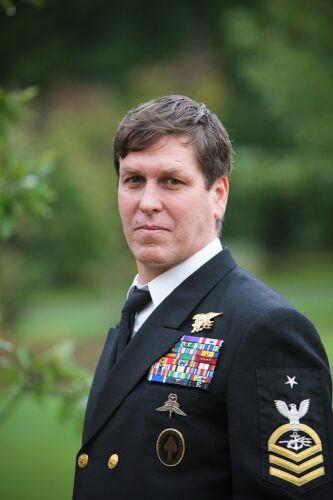



[…] content: detransitioned Navy SEAL, Russian spy Jack Barsky finds Jesus, a skull tattoo for every kill, Army Ranger becomes […]
Comments are closed.